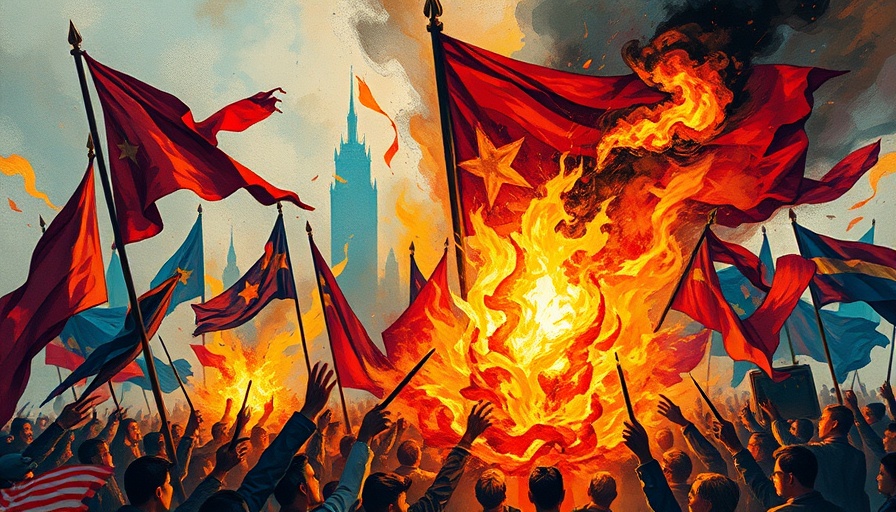
Trump's Push Against Free Speech: A Threat to Democracy
In a contentious political climate, recent governmental actions have stirred a heated debate about civil liberties in America. President Trump's executive order urging the prosecution of flag burning challenges a pivotal Supreme Court decision that protected such acts as political expression. This contentious issue was first ruled upon in the 1989 case of Texas v. Johnson, where Gregory Johnson's act of burning an American flag in protest was deemed an exercise of free speech under the First Amendment. Now, amidst rising nationalistic sentiments, Johnson's landmark victory finds itself under threat.
Historical Context: The Flag and Free Speech
The act of flag burning, though contentious, has a historical precedent rooted in protest. Johnson's 1984 demonstration during the Republican National Convention was meant to criticize the Reagan administration's policies and highlight America's darker history of oppression. Advocates argue that such acts are a critical avenue for dissent in a democracy, raising essential questions about the extent to which free speech should be protected.
What Trump’s Executive Order Means for Freedom
The implications of Trump's directive are significant. By calling for strict measures against flag burning, Trump not only contests a Supreme Court ruling but also invites scrutiny over what defines protected speech. Legal experts suggest that these actions could pave the way for broader limitations on free expression, raising concerns among civil rights advocates about the slippery slope of government overreach.
Arguments on Both Sides: National Unity vs. Individual Rights
While proponents of Trump’s order argue that it fosters patriotism and national unity, critics warn it undermines the very foundations of democracy. The fear is that enforcing laws against flag burning might lead towards coercive patriotism—a concept that Johnson vehemently opposes. In his view, true patriotism allows for dissent, where individuals can openly question and challenge their government without fear of retribution.
Future Implications: What Lies Ahead for Free Speech?
The next steps will be crucial in determining the future of free speech in America. The landscape may shift depending on the responses from the judiciary and public opinion. Legal challenges are likely as citizens and organizations rally to protect their rights. The potential erosion of First Amendment protections raises profound questions about the balance between respect for national symbols and the fundamental right to express dissent.
Take Action: Stand for Free Speech
As citizens navigate these complex issues, it’s essential to engage in the conversation surrounding free speech rights. Be informed, get involved, and advocate for the preservation of rights that form the cornerstone of our democracy. Encourage discourse and promote understanding of what it means to live in a society that values free expression.
 Add Row
Add Row  Add
Add 




Write A Comment